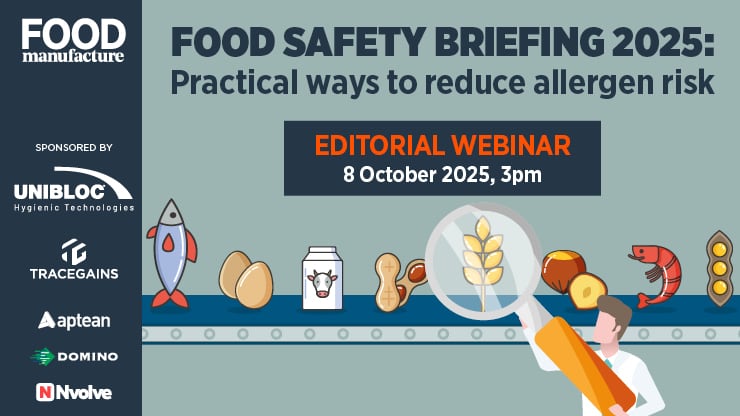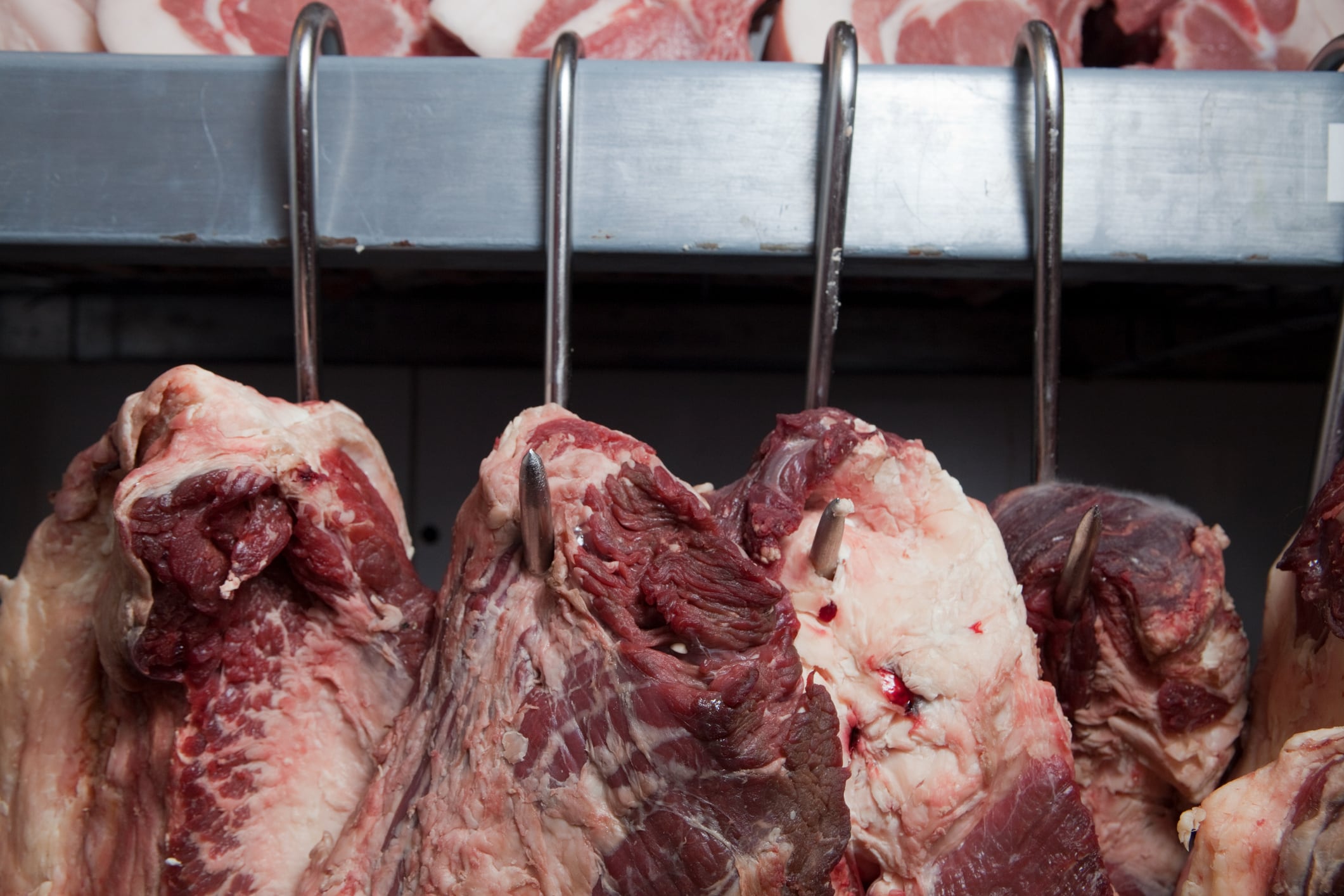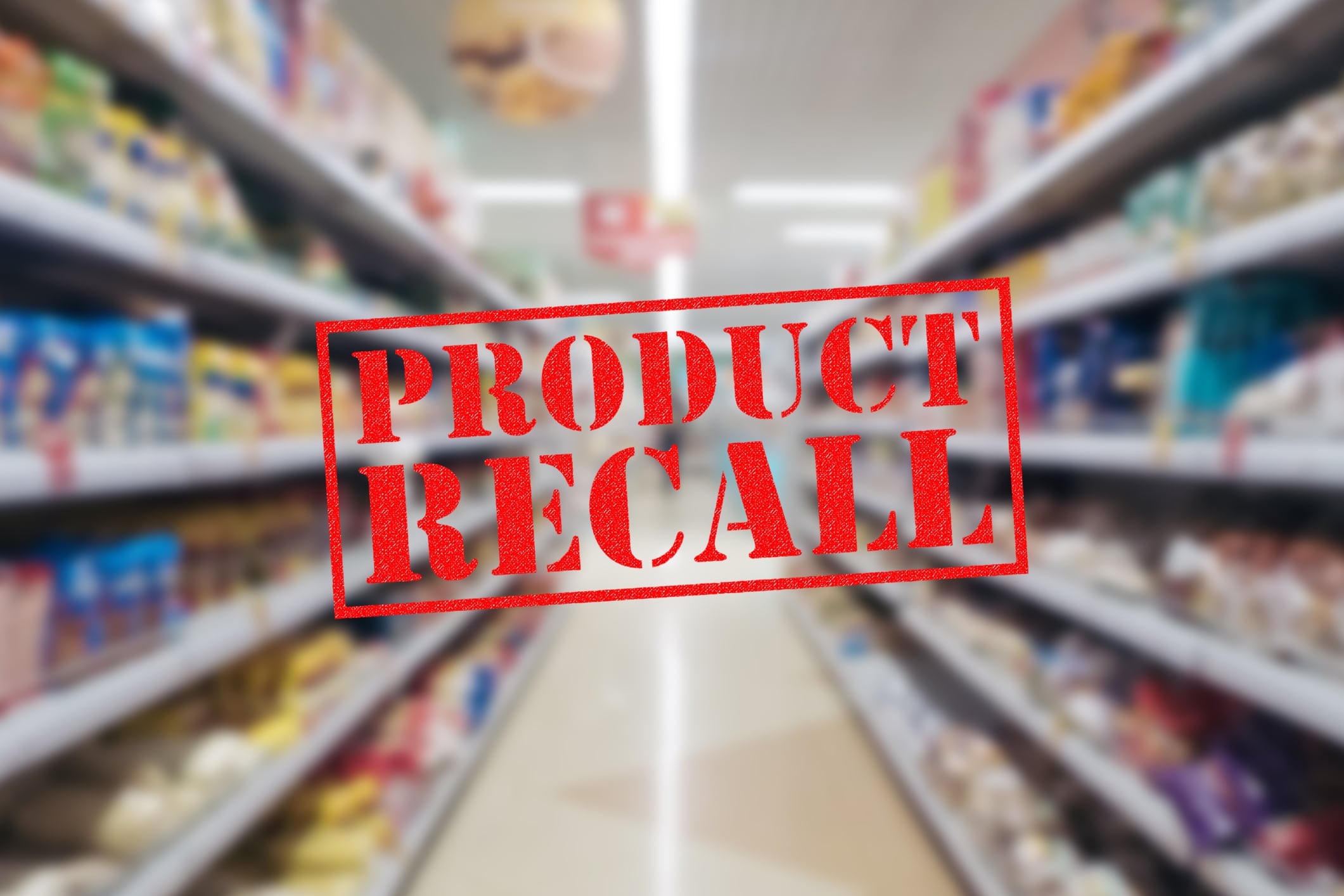Around the world, those with food hypersensitivities rely on food producers to ensure the food and drink they consume is safe. In the UK alone, as many as 2.4 million adults have a food allergy.
While the efforts of the UK food industry are outstanding, allergen contamination remains a big issue. In 2024/2025, allergens were the second most common type of incident the Food Standards Agency was notified about, with 264 recorded. Among these was the notable peanut-mustard event, which impacted 303 products across 56 brands.
With further research from The RQA Group showing that allergen labelling errors were the most common reason why food was recalled in the UK between January and June 2025, this is a major issue that needs addressing.
Whether you’re in quality control, operations or technical management, our upcoming Food Safety Briefing will equip you with actionable strategies to reduce allergen-related recalls, improve compliance, and strengthen trust among your customers.
Key learning outcomes
- Understand the patterns behind food safety failures and how to break them
- Identify the controls available and which are most suited to your business model
- Discover how artificial intelligence is transforming risk management
- Get expert insights on equipment, tools and protocols
- Ask your questions live during our interactive panel
Panellists and presentations
Throughout the 90-minute session, we will hear from a series of industry experts on practical ways food processors can mitigate withdrawals and recalls as a result of poor cleaning controls, supply chain mishaps, mislabelling, and more.
Independent food safety consultant Nic Sharman has 30 years’ practical experience in the food industry, across manufacturing, hospitality and retail. Her career includes 7 years at Marks & Spencer, where she was responsible for developing the industry manufacturing standards, and the food safety and integrity audits.
Sharman will start the briefing, outlining the top 5 food safety non-conformities identified in the latest annual BRCGS compliance report, before diving into specific trends on allergens. Her 15-minute presentation will flag common mistakes made by food manufacturers, and the controls needed to prevent future incidents.
Unibloc Hygienic Technologies’ Callum Whyborne joins the briefing for another year. The experienced engineer boasts almost a decade of pump technology expertise in both hygienic and industrial applications, and this time around will be exploring the impact people have on food safety, highlighting the importance of proper equipment usage, maintenance and continuous training.
The Food Standards Agency will follow on from Whyborne, with a presentation focused on learning lessons from incidents, root cause analysis and practical support for your business.
To conclude the presentations, food safety consultant Bert Popping will bring his food regulatory and compliance expertise, teamed with his work in integrating emerging technologies into food safety strategies, to offer a deep dive into how AI is being used to enhance food safety.
Along with providing insightful case studies of how AI is being implemented to protect against allergen mishaps, Popping will also explore the future opportunities for this technology and the guardrails manufacturers must consider going forwards.
Afterwards, the experts will join the session live for an interactive panel discussion where we’ll explore the topics in more detail and take questions from the audience. Alongside the four presenters, we’ll also be joined by Paul Bradley, senior director of product marketing at TraceGains.
TraceGains is helping food and beverage businesses cut through the noise with real world, practical AI applications that enhance food safety programmes. This includes automated intelligent tech able to scan supplier documents, extract critical data, and convert it into standardised digital forms that can be shared across supply chains instantly.
Today, TraceGains is seeing teams leverage this technology to eliminate manual Certificates of Analysis (COA) reviews. The same AI reviews lot-level COAs against specifications, flagging out-of-spec materials before they become a problem.
Instead of chasing spreadsheets or rekeying data, companies get verified, consistent information they can act on – whether that’s building dashboards, spotting risks early, or scaling compliance across global supply chains. And because this all happens on the TraceGains Network, it doesn’t just help individual companies, it connects the entire industry, creating a safer, smarter, more collaborative food system for everyone.
The live Q&A portion will give you the opportunity to ask questions to all five experts. You can submit these before or during the live stream.





